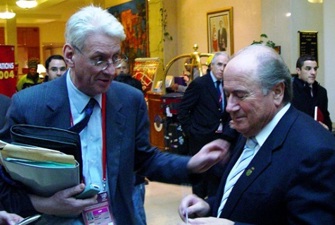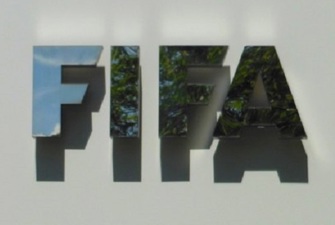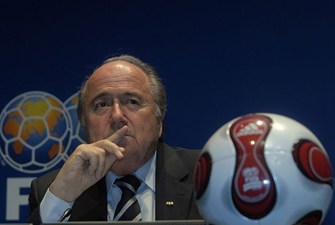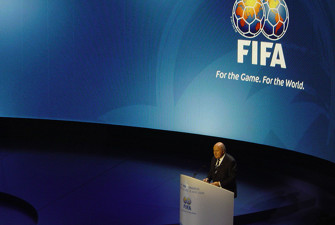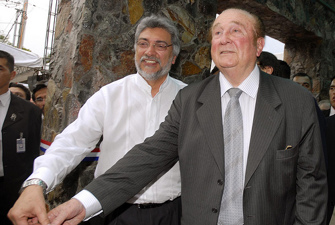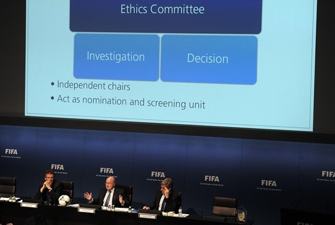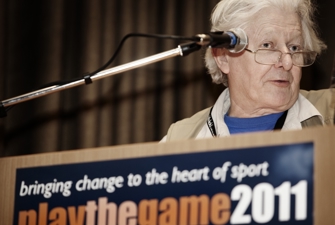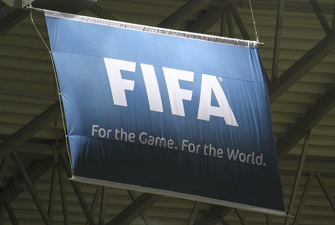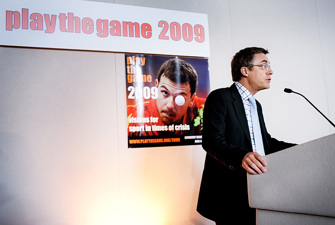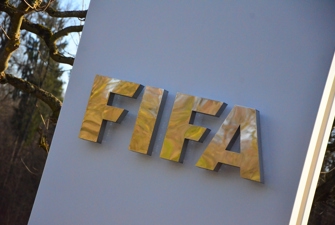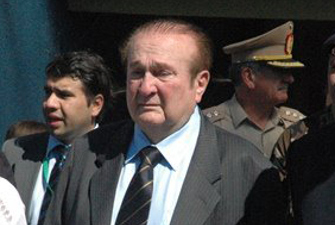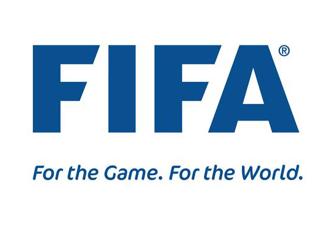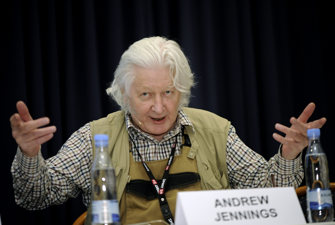FIFA announces reform process against corruption
A new committee on good governance supplemented by four task forces is going to propose reforms in FIFA, FIFA-president Sepp Blatter said at a press conference on Friday. He also announced that the so-called ISL case will be reopened. But it is still uncertain how far-reaching the reforms will be.
FIFA will set up a new independent committee on good governance with 15-18 members who are supposed to supervise that FIFA implements the necessary reforms dealing with the corruption, lack of transparency and other governance problems in the organisation.
At a press conference held in Zürich on Friday afternoon following a two-day meeting with the Executive Committee, FIFA president Sepp Blatter did not give many details on the composition of the new commission except that he would like to see the anti-corruption organisation Transparency International take part in the work.
Apart from Transparency International, the new ‘Committee Good Governance’ will be composed of a mixture of football interests, including clubs, players and national federations, but also have members representing outside interests like the political world, media, sponsors, and international organisations.
The committee is set to advise the FIFA Executive Committee when it starts working after the New Year. In accordance with FIFA’s new ‘road map’ for reforms, its first meeting should take place in February 2012.
Next to the committee on good governance, FIFA will also establish four ‘task force’ groups that will look at the need for possible changes in the FIFA statutes, a strengthening of the FIFA Ethical Committee, the transparency issue in FIFA, and more pitch-relevant changes in football. The task force groups should work closely together with the good governance-committee and refer directly to FIFA’s Executive Committee as well.
According to the road map, which was unanimously backed up by the Executive Committee, the FIFA executives will discuss the first recommendations from the ‘task forces’ at its meeting on 17 December followed by more recommendations including proposals from the ‘Committee Good Governance’ at the Executive Committee meeting in March 2012.
FIFA says it will open ISL case
At the press conference Sepp Blatter also announced that the so-called ISL case, which FIFA has until now managed to keep secret from the public thanks to an agreement with the Swiss courts, should be reopened and handed over to ‘an independent organisation’ outside FIFA.
This organisation has not been named yet, but according to Blatter it will be up to the organisation to delve into the file and extract its conclusions and thereafter present them to FIFA.
"The executive committee has at my request agreed that in the meeting of 16-17 December we will re-open this file. (...) If there are any measures to be taken they will not be taken by the Executive Committee – it is not the body that can take sanctions or release anyone. "
The highly sensitive files have the potential to compromise a number of football officials for taking bribes from the Swiss-based sports marketing company ISL before it went broke in 2001. The present Brazilian football president and president of the World Cup in 2014, Ricardo Teixeira, is just one of several highly ranked football officials that have been put in connection to ISL’s 141 million Swiss Francs corruption scheme that targeted a broad range of sports leaders. Teixeira himself has denied all allegations.
"The court has said there are people involved but no Swiss people, only foreign people," Blatter said at the press conference.
Comments on the reforms
It was not clear whether the files will actually be opened to a broader public or be kept in a more closed FIFA-controlled circuit for further investigation. And in general, it is still uncertain how far-reaching FIFA’s reforms will actually be.
That is reflected in some of the first reactions to the press conference, which range from a sceptical approach to a more positive wait-and-see reaction.
Transparency International, which has actively been giving FIFA advice on how to strengthen good governance in the organisation after the FIFA congress in June and the severe corruption allegations against a number of FIFA top officials, is cautiously positive in its press release:
“Transparency International was optimistic that FIFA would deliver on its promise to investigate the past and introduce reforms. This is a very important first step,” says Sylvia Schenk, senior advisor for sport, who has participated in meetings with Sepp Blatter. “But it is just the beginning. They have addressed several key issues but there is still a lot of work to do to restore credibility and we will have to wait until December to see how far and how quickly they act. It will be a big challenge to implement the reforms and it will require a change of culture in the whole world of football.”
On his sports political blog, American professor Roger Pielke, Jr. is promoting a more sceptical attitude to FIFA ability to reform itself based on the general experience that NGOs rarely manage to pass real reforms.
"In short, FIFA has not yet embarked on a reform agenda. It has set up a few advisory task forces and committees to propose reforms,” he writes in a comment, concluding:
“The bottom line is that today, nothing has changed. While some will point to the announced release of the ISL court documents as a positive step (and indeed it is) it hardly makes up for the fact that governance reform remains off in the future."
And even the release of the ISL documents could, according to German journalist and blogger Jens Weinreich, just be a decoy.
In his blog he writes:
“FIFA can at any time publish the documents that especially incriminate Teixeira and Havelange (former FIFA president, ed.). Nobody prevents them from doing so.”
Read also:
Read Roger Pielke Jr.'s first comment on the FIFA reforms.
Follow the blog of German journalist Jens Weinreich (in German).
